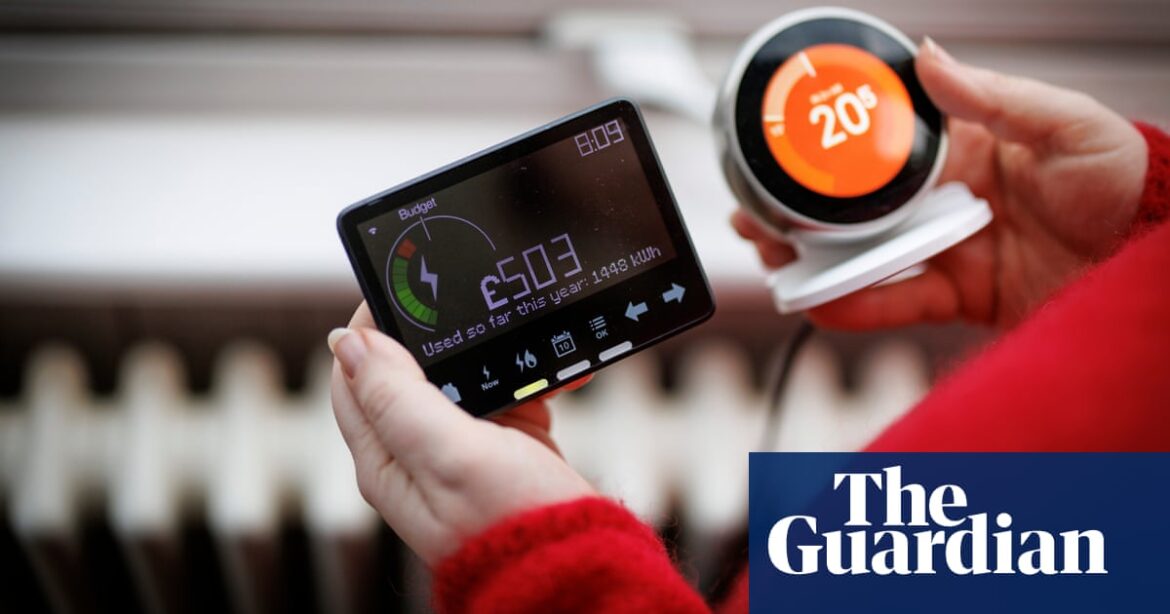
Millions of homes will face higher than expected energy bills from April after the industry regulator said its price cap would rise by more than £100, increasing for a third consecutive quarter.
The energy regulator, Ofgem, said the cap on gas and electricity charges would rise by £111 from April to an average of £1,849 a year for a typical household after a surge in energy market prices.
The 6.4% rise from April means households will pay about £600 a year more for their gas and electricity than before Russia’s invasion of Ukraine three years ago.
The latest price cap increase is significantly steeper than the 1.2% rise predicted by analysts at Cornwall Insight in January. The consultants said a rise in energy market prices across Europe had pushed costs higher, which could lead to even higher charges next winter.
About 9m homes that buy their energy through variable tariffs will see an immediate impact on their bills as the cap takes effect in April. The hit will be delayed for others on fixed tariffs.
Households could face even higher bills if they use more than the typical amount of energy. This is because the cap, which is recalculated every three months, limits the rate energy suppliers can charge customers for each unit of gas and electricity – not the total bill.
From April, the cap on electricity prices will rise from 25p a kilowatt hour to 27p, while the standing charge will fall from 61p to 54p. Gas will increase from 6.34p a kilowatt hour to 6.99p, and the standing charge will rise from 31.65p to 32.67p.
Campaigners have said the third consecutive increase of the cap will be “unbearable” for households who have struggled to pay their bills during winter.
It is also likely to pile pressure on the Labour government, which came to power last summer with the promise that households would see their bills fall by £300 a year by 2030 under its plans for a clean power system.
Ed Miliband, the energy secretary, blamed fossil fuel markets for the “worrying news for many families”. He said the way to deliver energy security and “bring down bills for good” was to deliver the government’s mission “to make Britain a clean energy superpower – with homegrown clean power that we in Britain control”.
In addition, the government said it was consulting on plans to expand the warm home discount, which gives eligible households £150 off their winter energy bills.
This would bring another 2.7 million households, including almost 1 million families with children, into the scheme. The total number of households receiving the discount next winter could rise to 6.1 million, or one in five families in Britain, the government said.
after newsletter promotion
Ministers also plan to work with Ofgem to speed up proposals to tackle unsustainable debt run up by families during the energy crisis, with the aim of lowering costs by £25-£30 a year.
Jonathan Brearley, the Ofgem chief executive, said: “We know that no price rise is ever welcome, and that the cost of energy remains a huge challenge for many households. But our reliance on international gas markets leads to volatile wholesale prices, and continues to drive up bills, which is why it’s more important than ever that we’re driving forward investment in a cleaner, homegrown system.”
The plan to expand the warm home discount was welcomed by campaigners, who for months have called on ministers to do more to help struggling households after the government removed winter fuel payments from about 10 million pensioners last year via a separate scheme.
Adam Scorer, the chief executive of National Energy Action, a fuel poverty charity, said: “Households already faced sky-high bills as a result of the energy crisis, and today’s announcement will add to the burden on the most vulnerable.
“We already see the impacts of sustained high bills – total energy debt is at record levels and rising, and people are rationing their heating to dangerous levels and going without essentials.”
Dame Clare Moriarty, the chief executive of Citizens Advice, said: “We’re particularly concerned about households with children, where more than one in three struggle to afford bills, rising to more than half of those on low incomes.”
Source: theguardian.com



